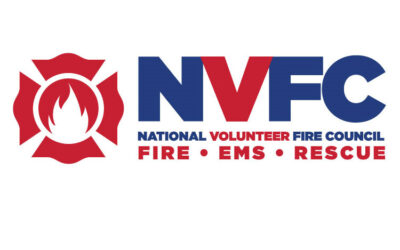Special to The Rig
By Joseph Murray
Similar to variances in size and structures of fire departments across North America, fleet manager positions also vary greatly. Fleet managers may be full-time positions within the fire department structure or they may be roles assigned under another position.
In many cases, the fleet manager might actually work under another municipal department, or the position may even be contracted out to a private entity. Regardless of how the organization is structured, there are a variety of desired skills and roles that should fall within the designated fleet manager job description to ensure the success of the fire department’s fleet program.
- Fleet Replacement Challenges Equal Opportunities
- Responsible Fleet Management for Emergency Response Vehicles
- Maintaining Your Fleet in a Down Economy
- Maximizing the Efficiency of Your Fleet
- Performing a Fleet Audit Survey
Although day-to-day tasks and responsibilities may vary, fleet managers’ strategic responsibilities are fairly consistent across the board. The primary role of the fire department fleet manager is to ensure that all fire apparatus are ready for use and that they are compliant with all applicable safety standards. Other common fire department fleet manager responsibilities include acquiring apparatus; managing maintenance, repair, and parts programs; ensuring compliance with various apparatus and safety standards; fleet benchmarking; determining apparatus life cycles; andthe ultimate disposition of apparatus. Depending on your department, the fleet manager may undertake these tasks as an individual or with additional support staff.
Fleet managers are integral parts of any fire department, and it is essential that fire chiefs choose the right candidates to fill these vital positions. The fleet manager position today encompasses so much more than simply purchasing and maintaining apparatus. To be successful, the fleet manager should be well rounded and possess a number of key skills, traits, and abilities.
LEADERSHIP TRAITS
First, as a leader within the fire department, the fleet manager is responsible for assisting in the fulfillment of the department’s mission, for ensuring the fleet division is productive, and for the growth of those under his command. A good fleet manager will properly manage his time, focus on outward contributions, andbuild on the strengths of his team. A fleet manager must lead by example. He must set the standard for his staff and continuously focus on the methods by which his division can best assist the fire department in meeting its mission.

DATA ANALYSIS AND BENCHMARKING ABILITIES
Today’s fleet managers must have a good understanding of data analysis and benchmarking to make the best decisions when it comes to the fleet. They should be able to identify trends and patterns within fleet operations, develop benchmarks or key performance indicators (KPIs), make informed decisions based on collected data metrics, and track performance and improvements over time. Tracking reliable and accurate data related to apparatus performance, safety metrics, and various costs will allow a fleet manager to optimize the fleet program and ensure fleet efficiency into the future.
COMMUNICATION ABILITIES
Fleet managers must communicate effectively with their staff as well as the fire administration, public officials, vendors, and members of the community. They must clearly communicate how various requests, processes, or actions aid in meeting the overall mission of the organization. The days of promoting solely based on mechanical inclination have long passed. In today’s environment where fire departments are actively competing for limited resources, it is imperative that fleet managers communicate effectively. While a certain level of mechanical experience is necessary, the ability to communicate effectively is an essential component of division success.
FINANCIAL APTITUDE
Financial aptitude is an essential trait for the fleet manager. With a good financial background, a fleet manager can make better decisions that contribute to the overall mission of the organization. A fleet manager with a solid understanding of financial management can better evaluate the financial implications of decisions to make the most informed choices. The ability to assess the financial viability of apparatus, equipment, projects, and programs can potentially save the department many thousands of dollars. A strong financial background may contribute to a positive relationship with the finance department or those in charge of the community’s budget. Fleet managers who have a solid understanding of finance concepts often serve as liaisons between fire departments and those in charge of the communities’ budgets. Fleet managers with a good grasp of financials will be able to identify areas for cost efficiencies and eliminate wasteful practices, both of which affect the fire department’s bottom line.
UNDERSTANDING AND MANAGING COMPLIANCE
One of the fleet manager’s most important responsibilities is to ensure that all apparatus and equipment meet required standards, including those that are statutory and those set or adopted by the organization. Ensuring that your fleet manager understands Occupational Safety and Health Administration (OSHA) requirements and is proactively preparing for potential future mandates is paramount. A good working knowledge of Insurance Services Office (ISO) requirements and various National Fire Protection Association (NFPA) standards that apply to apparatus, equipment, safety, training, and driving are also important for the fleet manager. Since he plays an important role in keeping firefighters safe, the fleet manager must make compliance with applicable safety standards a top priority. Above all else, it is imperative that the fleet manager dedicates himself to preventing accidents and resulting injuries. The fleet manager should also work with those responsible for training to ensure that apparatus driver-operators are well trained and knowledgeable about their fleet.
PROJECT MANAGEMENT SKILLS
The fleet manager is also a project manager and must be able to plan, organize, and direct projects. The fleet manager is responsible to ensure tasks are completed on time, that projects stay within the allocated budget, and that all projects comply with the mission of the organization. Perhaps the most obvious project that comes to mind is acquiring new fire apparatus. While the purchase itself is a project that requires a competent fleet manager, the project doesn’t end with apparatus delivery. The fleet manager continues to manage apparatus throughout their service life, from monitoring maintenance and repairs to continually evaluating their use and efficiency. All apparatus and equipment procured must remain in top condition and continue to meet the goals and objectives of the organization.
PERSONNEL MANAGEMENT SKILLS
It is important that the fleet manager has a solid set of personnel management skills when he has a staff. Personnel skills include workforce planning, which includes determining the roles and responsibilities of the staff; the required qualifications of that staff; and determining how many staff members he needs to achieve goals and objectives. Recruiting skills are also important, as the fleet manager must fill vacancies with qualified and motivated individuals who can contribute to the overall mission. In some organizations, this will be done by a human resources department or even dictated in a labor contract, but your fleet manager’s overall leadership style will help to recruit interested candidates.
Determining personnel assignments and how staff may be deployed to be the most impactful is another skill the fleet manager must possess. The fleet manager often functions as the frontline human resources representation for all those assigned to the fleet division. He must be able to manage various personalities to create a team atmosphere. He must have a good understanding of employee rights, applicable labor contract provisions, job descriptions, and schedules and benefits.
The professional development of fleet division employees may also be the fleet manager’s responsibility. He must evaluate and assess his staff, identify areas where additional learning would benefit staff members, and devise plans to accomplish development goals. This could take the form of many different pathways, from mentorships to formal courses and certifications.
AUTOMOTIVE MECHANICAL KNOWLEDGE
Automotive and mechanical knowledge remains extremely important for the fleet manager. Although today’s fleet managers must know a whole lot more than just how to repair apparatus, it is still an undeniably important component of the job, and they must possess a good working knowledge of automotive and mechanical functionality. A fleet manager must understand how the department’s apparatus and equipment work and function to make educated decisions in many other aspects of his job. Purchasing apparatus, developing maintenance programs, and forecasting future fleet replacements all depend on the fleet manager’s knowledge of apparatus functionality and service expectations. The fleet manager must also act as a mentor to those in his command whose responsibilities include daily apparatus maintenance or repair. He must be able to provide guidance when necessary.
Fleet managers today must possess a wide variety of skills to have the most impact and ensure their divisions’ success.
The fire service today has become increasingly complex, and the expectations of fleet managers have grown along with it. A well-qualified fleet manager can greatly assist the fire chief by successfully managing an area of the fire service that is highly technical and impacts almost all other operations. Fleet managers today must possess a wide variety of skills to have the most impact and ensure their divisions’ success. They must have a strong desire to lead and the ability to communicate with a number of different stakeholders. They must be dedicated to the safety and welfare of all firefighters and ensure compliance with all applicable safety standards. Today’s successful fleet managers have a good working knowledge of financial management as well as data and analytics to compete for vital financial resources. Finally, today’s fleet managers must possess the ability to manage projects and people and, of course, have a solid automotive-mechanical aptitude.
JOSEPH MURRAY, Ph.D., is chief and emergency management coordinator for the Dearborn (MI) Fire Department.






